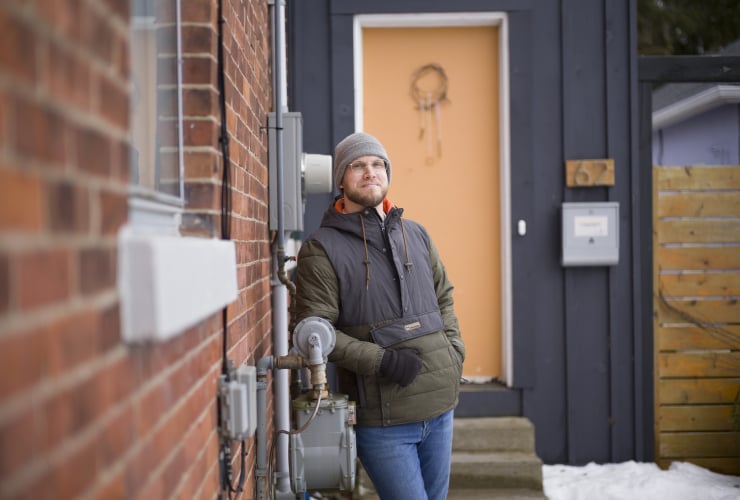How ’15-minute cities’ became the latest global conspiracy theory
In an age of impossibly dumb conspiracy theories, the one currently revolving around so-called “15-minute cities” might be the dumbest yet. After all, you might think living in a community where you can walk or cycle to school, work, the grocery store and other local amenities is a good thing. The fact that there’s something called a “Walk Score” attached to almost every residential real estate listing in North America would seem to support that idea. Instead, it’s apparently part of a nefarious plan to lock people in their homes and deprive them of their freedom — all in the name of climate change.
The concept of a 15-minute city was first articulated in 2016 by French-Colombian urban planner Carlos Moreno, a scientific director and professor specializing in complex systems and innovation at the Sorbonne who now serves as the mayor of Paris’ Special Envoy for Smart Cities. It builds very clearly on the work of Jane Jacobs, who was advocating for mixed-use and human-scale neighbourhoods more than 60 years ago, while also integrating more contemporary concerns about climate change and COVID-19’s lasting impact on how and where we work. And after winning the Obel Award (a €100,000 prize for “recent and outstanding architectural contributions to human development all over the world”) in 2021, Moreno’s idea was set to be piloted in Oxford, England, in 2024.
That pilot, which involves implementing traffic “filters” — cameras, really — on six roads in the community, is little more than glorified congestion pricing, which already exists in many parts of the U.K. If a car passes that camera at certain times of the day, its owner would get a fine in the mail, while there would be exemptions for buses, emergency services, health workers, care workers and people receiving hospital treatments. Oxford residents could apply for permits to drive through the filters on up to 100 days a year, while residents in the surrounding community could get permits for up to 25 days a year. As a Dec. 7 statement from Oxford city council noted, “The 15-minute neighbourhoods proposal aims to ensure that every resident has all the essentials (shops, healthcare, parks) within a 15-minute walk of their home. They aim to support and add services, not restrict them.”
So how did this idea get turned into a global conspiracy? Ironically, because Jordan Peterson — someone who lives in a 15-minute city, by the way — decided to tweet about it. “The idea that neighbourhoods should be walkable is lovely,” he wrote in a Dec. 31 thread that now has 7.5 million views. “The idea that idiot tyrannical bureaucrats can decide by fiat where you’re ‘allowed’ to drive is perhaps the worst imaginable perversion of that idea — and, make no mistake, it’s part of a well-documented plan.”
Peterson declines to actually identify this “plan” but goes on to suggest that “for this of you wilfully blind enough to consider this a ‘conspiracy theory,’ think again.” His smoking gun is a link to the homepage for C40, a collection of climate-concerned cities that includes socialist hellholes like Houston, Rio de Janeiro and Peterson’s own Toronto.
Less than a month later, former CBC Dragon Brett Wilson decided to offer his own take. “The #Edmonton based eco-alarmists have gone off the deep end. Nuts. Crazy. Irrational. Bizarre proposal,” he tweeted, linking to a map of the English town of Canterbury with “Edmonton 15 minute cities” written over it. Andrew Knack, a City of Edmonton councillor and proponent of aligning his city’s zoning bylaws with the goals of a 15-minute city, felt compelled to issue a clarification on his Facebook page — one in which he cited Wilson’s tweet as the cause of so much confusion and misinformation.
Things aren’t going much better back in England, either. Just last week, Conservative MP Nick Fletcher demanded a debate on what he called the “international socialist concept of so-called 15-minute cities,” one he suggested could “take away personal freedoms.” That was apparently met with laughter from his colleagues, which is at least some small comfort.
This silliness will all die down in due course, as the conspiracy caravan moves on to its fever dream du jour. But it also speaks to a larger problem that won’t go away any time soon. The COVID-19 pandemic, and all the conspiracy theories it spawned, has created digital communities that revolve around spreading them. There is a disconcertingly large proportion of the public that is primed to believe these sorts of things, especially when they’re spread by high-profile people. And that seems to go double, at least in Canada, for anything that involves reducing fossil fuel usage or adapting to lower-carbon ways of living, like the idea of a 15-minute city.
It’s tempting to think the rest of us can simply ignore this and get on with our lives. But for this segment of the population, there is no getting on with their lives. Instead, the act of believing the unbelievable has in some respects become their life, whether it revolves around vaccinations, climate change or some other globally relevant issue. That’s going to make pursuing policies like 15-minute cities more difficult than it needs to be, and it might discourage public officials from doing and saying things they otherwise would. That’s a tax on the rest of us, whether we like it or not — and its price seems to keep going up.



